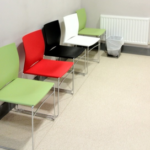Stop the Stigma – A community campaign
Anna Quigley is a Co-ordinator of CityWide and acts as the community sector representative on a number of national bodies.
This week saw planning permission being refused for the development in Dublin city centre of a Safer Injecting Facility, an action that is included in the governments National Drugs Strategy (NDS) Reducing Harm Supporting Recovery. We also saw a government minister reassuring her constituents that following representation from her office to the Department of Health, a new methadone clinic will not be developed at the local Health Centre. Supporting greater availability of methadone is also an action in the NDS introduced by the Minister’s government. So how are we to deliver the health-led approach on which our NDS is based when we see drug services being rejected in this way?
Red C research commissioned by Citywide in late 2016 shows that while there is some softening in public attitudes towards people who use drugs, the majority opinion is still very unfavourable. Nearly two thirds (64%) said that it would bother them to live near somebody who has a drug dependency. Just over half said that they felt “scared” of people with a drug dependency. Nearly 90% believe that drug-related crime is a major problem in Ireland. It is interesting to note that while 97% of public order offences are alcohol-related, people with problematic alcohol use are not stigmatised to the same extent.
Drug-related stigma is a major barrier to developing effective responses to problem drug use; Stigma stops people from seeking help, it has a negative impact on recovery when people do go into services, it leads to depression, isolation and mental health issues and its impact is long-lasting; this is why Citywide launched its campaign Stop the Stigma Campaign in February 2018. The aim of the Campaign is to break down stigma, to shift attitudes and to move towards a situation where people who use drugs are treated with respect and dignity. The campaign is not about denying or ignoring the impact that the behaviour of people affected by drugs can have on communities but we need to get the message out there that stigma makes the problems worse for everybody – the person using the drugs, their families and the wider community. Nobody is winning.
The key feature of stigma is that it defines people by what is referred to as a “stigmatised identity” that marks them out as different, distinct and of less worth than other “normal” people. In the Minister’s statement referred to above she says “The health centre is used by many local residents and would not be suitable as a methadone clinic.” This sentence sums up what is at the core of stigma – representing people who use drugs as the “other”, as different to “normal” local residents.
Blaming people for their own situation is a crucial part of stigma. The view is often expressed that people make a choice to take illicit drugs in the first place so they are to blame, people choose to continue to take drugs so they are to blame. There is a contradiction at work here – as a society we recognize the evidence that problem drug use is linked to a whole range of factors – personal, social, environmental, economic – that impact on people’s lives and on their life choices, but despite this, we still lay blame on people for using the drugs that cause the problem.
It’s interesting and it’s important to note that not all people who use drugs are stigmatised in the same way. Most recent figures show that in the EU over 92 million people (EMCDDA) have used illicit drugs and in Ireland the figure is over 26% (more than 1 in 4) of the population (NACDA). The vast majority of these people do not develop a problem with their drug use. For the people that do, there is a strong “social gradient” in relation to problem drug use in Ireland with a particular concentration in deprived urban areas. It is this group of the most problematic drug users who are generally the most visible to the public as they spend more time on the streets, often visibly affected in their behaviour by the drugs they are taking. The problem drug use is seen by the public as the defining characteristic or the “master status” of the people who they see on the street, rather than seeing the more fundamental impact of inequality and disadvantage in their lives. There are strong links between the stigma attached to drug use and the stigma attached to poverty and we need to be more upfront in acknowledging this.
The way people who use drugs are presented in the media contributes to and compounds a view of dangerous and/or untrustworthy people. Just think about the words used for people who use drugs. They are called junkies as a common descriptor, it’s used so frequently and so naturally, that we have lost sight of the fact that the word is a derivative of junk, of waste, of human debris. Some of our bestselling media commonly use the words druggie, junkie or scumbag in headlines, though there are significant variations across different media sources.
People who use drugs describe how stigma makes them feel humiliated, worthless and degraded, and makes them more likely to use drugs again. They see us as worthless… people don’t understand… they don’t see us as people… depressed… demoralised… angry…trapped…isolated…helpless…dehumanised…fearful…ashamed…a failure
We have tried punishing, stigmatising and criminalising people so that they will stop using drugs and the problem will go away. This approach has completely failed us and we now need to engage in a public awareness campaign to increase people’s understanding of how addiction actually works. The Working Group on Alternative Approaches to criminalisation for possession for personal use provided an opportunity for a public debate and awareness-raising but in the end its work and its findings represent a serious missed opportunity to make progress. At every level our responses to drugs are still impacted by stigmatisation of people who use drugs – how long before we accept the evidence that this simply doesn’t work?
Learn more about the ‘Stop the Stigma’ campaign at https://stopthestigma.ie/

